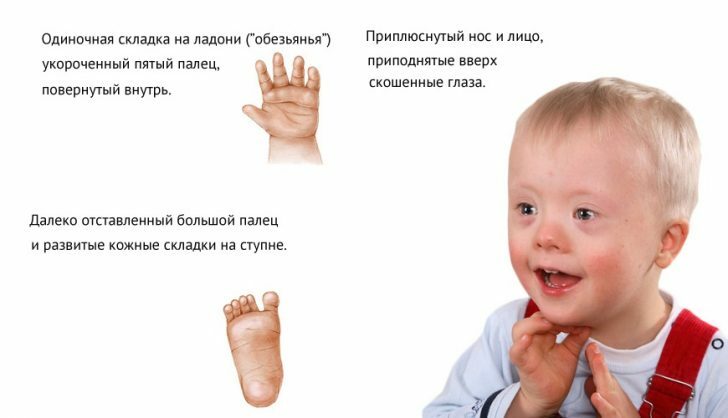Children's flu vaccinations
 Children's body is very weak. Therefore, children are more likely to suffer from flu and colds than adults. With the onset of cold weather, the risk of contracting the infection is significantly increased. Therefore, parents are looking for a way to strengthen the immunity of the baby and prevent flu.
Children's body is very weak. Therefore, children are more likely to suffer from flu and colds than adults. With the onset of cold weather, the risk of contracting the infection is significantly increased. Therefore, parents are looking for a way to strengthen the immunity of the baby and prevent flu.
Today many pediatricians advise parents to make their children vaccinated against influenza. Vaccination against influenza is not considered mandatory. Therefore, many parents do not do it. However, as practice shows, such an inoculation is able to protect the baby from the flu for a long time.
Than the flu for a child is dangerous
For children, influenza is much more dangerous than for adults. The thing is that it gives a lot of complications to the organs. In addition, during illness the child feels very bad. He has a fever, chills, diarrhea, nausea, headache and other unpleasant symptoms.
After the flu, you may have problems with the heart, kidneys, liver. Very often this disease causes complications in the form of pneumonia, otitis and even sore throats.
Is there a need for vaccination?
Today, many influenza viruses are mutated. Because of this, conventional antiviral drugs do not do well with them. Curing a mutated type of influenza is much more difficult. In addition, the symptoms can be very different.
The most common types of viruses are A, B and C. The most dangerous type of A, type B is less dangerous. The type of influenza C is most easily transferred by the body. During vaccination, a small amount of the virus is injected into the body of the child, due to which the body begins to actively develop antibodies against it. Dosage of viruses is safe for the body, and he copes without problems, thanks to which the child does not get sick after vaccination.
A flu vaccine will help protect the baby's body if he visits a school or kindergarten. Of course, there is no absolute guarantee that the vaccinated child will not get sick. However, it will be less vulnerable to infection. In addition, even if the vaccinated baby gets sick, he will still carry the disease much easier, without serious complications.
Pediatricians are advised to get flu shots once a year at the same time. It is best to carry out the vaccination in the autumn, as the influenza virus mutates over time and the earlier vaccination can be ineffective.
For the development of antibodies against influenza, the baby's body needs two to three weeks. If the flu epidemic has already begun, then the vaccine will be useless. Therefore, it must be done much earlier than the beginning of the epidemic.
Nuances of vaccinating children
Every parent knows that a child needs to do a lot of routine vaccinations. You can not miss such vaccinations. However, what to do if a routine vaccination coincides with a preventive vaccination against influenza. Is it possible to combine such vaccinations?
Modern medicine is very developed, so many vaccinations can be combined. Of course, if there is a possibility, it is better to vaccinate with a short interval of several weeks, so as not to give a strong load on the body.
If a child has an allergy to vaccinations, it is better not to combine the flu shot with other vaccinations.
Can a child get sick after vaccination?
The flu vaccine does not give a full guarantee that the child will not get sick with the flu. As already mentioned above, vaccination will only help reduce the risk of infection. However, this does not mean that it is worth to give up vaccination.
Vaccination against influenza may be ineffective if it was carried out too late. Immunity of the child did not have time to form antibodies, and the resistance of the body has already decreased. This happens if the vaccine was "live".
If the body already has a flu virus, then it is likely to become infected. However, the flu will pass quickly and without complications.
Contraindications to vaccination against influenza
Vaccination against influenza can not always be done. There are some contraindications to them. These include:
- exacerbation of chronic diseases;
- allergic reaction to protein and other preservatives;
- high fever, vomiting, diarrhea and the like( in such cases, vaccination is delayed for several weeks, so that the body can recover);
- is an allergic reaction to influenza vaccinations.
The flu vaccine is considered "live".This type of vaccination is prohibited for children under the age of three.
How to prepare a child for flu vaccination?
Before taking the child to a vaccination against the flu, you need to make sure that he is absolutely healthy. If the baby has a runny nose, cough, fever or just a bad feeling, then the vaccine needs to be rescheduled for another day.
If the baby has only recently had a cold or infectious disease, then the vaccination is postponed for three to four weeks. It is better to consult a pediatrician when to get a flu shot.
When the infection enters the body, it can immediately not cause symptoms of the disease. Before the onset of the disease, babies can become moody, sleep and eat poorly, and be less mobile. If you have these symptoms, you need to postpone the vaccination for five to six days to make sure that the baby is healthy.
The child should feel good before vaccination. It is also important that he is not hungry. The pediatrician must conduct a preventive examination: listen to the lungs and bronchi, check the neck, measure body temperature. If the doctor is satisfied that the baby is healthy, then you can start vaccination.
What to do if a child is allergic to
Children with allergies can be vaccinated against flu. However, strictly follow the doctor's recommendations. Children with allergies should be vaccinated only in a specialized room for immunization. In the office at the time of vaccination should be antihistamines and anti-shock drugs. Only in case of aggravation of allergy or in severe forms of allergy vaccinations are not done.
Before the start of vaccination, medicament preparation is carried out. Doctors prescribe such drugs: claritine, suprastin, diazolin or herbal preparations. After the vaccination, the child should be under the supervision of a doctor for forty minutes.
Precautions
You can vaccinate your baby from the age of six months. However, at this age, doctors rarely prescribe a vaccination. Older children are vaccinated against influenza according to a special scheme. Beginning at age two, a child can be vaccinated against the flu, but it will be split into two parts. The first dose is administered immediately, and the second one in a month.
In the first year and a half after the birth, the child is given a lot of planned vaccinations. That's why doctors try to avoid vaccination at this age. Assign vaccination only if the child is very sick with pneumonia or bronchitis.
Doctors recommend vaccinations to parents who have children under the age of three. Also parents should walk as much as possible with the child in the open air and try to avoid visiting with the child crowded places.
To protect the child from getting infected with the flu during an epidemic, it is necessary to adhere to simple rules:
- immediately after walking on the street you need to wash your hands and face with soap;
- it is recommended to rinse the throat and nose;
- needs to air the rooms and do wet cleaning every day;
- is recommended to give the baby vitamins from rose hips, thorns and other useful berries and herbs;
- can be given multivitamin complexes.



